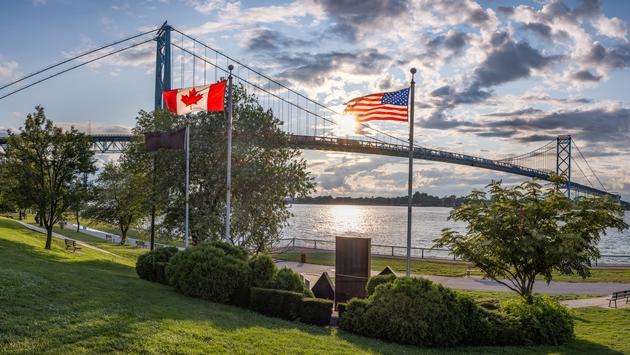The United States and Canada today announced the further extension of their mutual ban on non-essential land-border crossings through May 21, Reuters reported.

These restrictions were first imposed bilaterally back in March 2020—when the global crisis first began escalating—to mitigate transmission of the COVID-19 virus and have been renewed by both nations following review on a monthly basis ever since.
Travelers bound for Canada by air will continue to be COVID-19 PCR-tested upon arrival and are required to stay their first three nights at a designated quarantine hotel, which they pay for themselves. If their airport test results come back negative, travelers are permitted to finish out their 14-day quarantine at home, subject to increased surveillance.
The Canadian government implemented these intensified regulations to deter would-be travelers from taking off on spring break trips, but health authorities today announced that these will also be extended through May 21.
Air travelers had already been required to provide a negative COVID-19 PCR test taken within 72 hours of their arrival in Canada, to which the airport testing and hotel quarantine measures were added at the end of February.
Returning residents or persons granted exemptions for land crossings are also required to provide proof of a negative PCR test taken within 72 hours of travel in order to enter Canada. Those who arrive without a negative test aren’t sent back to the U.S., but instead get fined up to $3,000 Canadian (US$2,370).
"We are guided by science and public health data, and engaged in discussions with Canada and Mexico about easing restrictions as health conditions improve," the U.S. Department of Homeland Security tweeted.
After 13 months of the U.S.-Canada land border being closed, border communities and local economies that rely on the regular cross-border traffic are suffering, prompting some U.S. lawmakers to call for the easing of restrictions. But, Canadian Prime Minister Justin Trudeau declared last month that he didn’t plan on reopening land borders with the U.S. anytime soon.
Besides, now may not be the best time for the U.S. to consider lifting the land border ban, considering that much of Canada is currently battling a third COVID-19 wave fueled by no less than three highly contagious variants of the virus.
For this reason, the U.S. Centers for Disease Control and Prevention (CDC) has advised Americans to avoid travel to Canada , even if they’re fully vaccinated, as scientific studies suggest that at least one of these variants (P.1 from Brazil) is able to evade the immune response to prior strains of the virus.
Leave a Comment